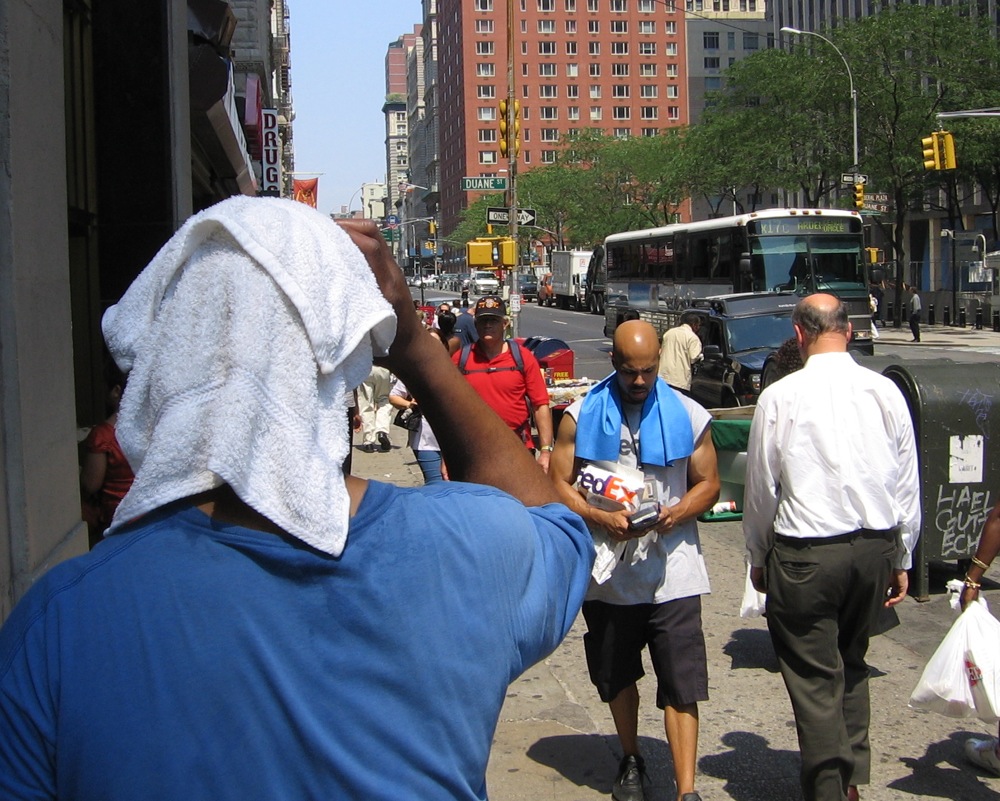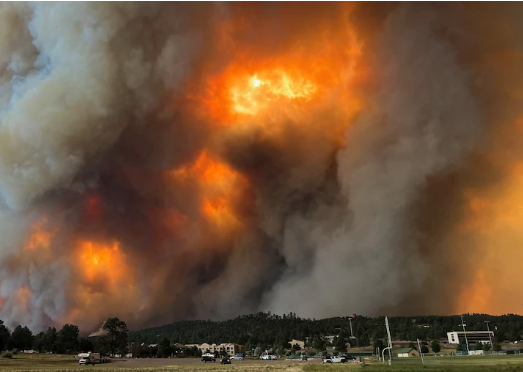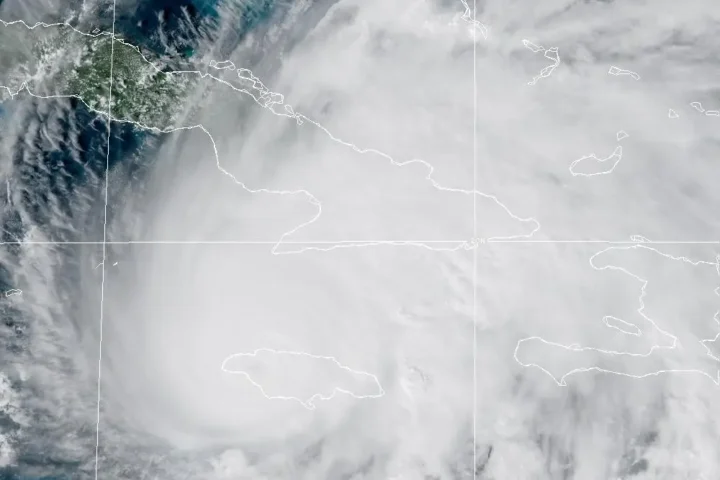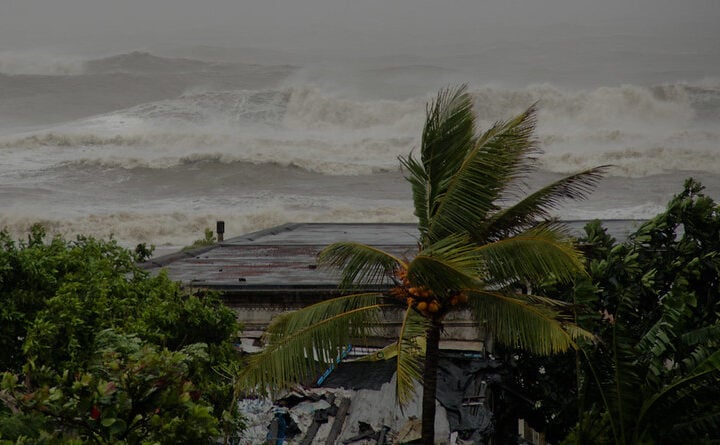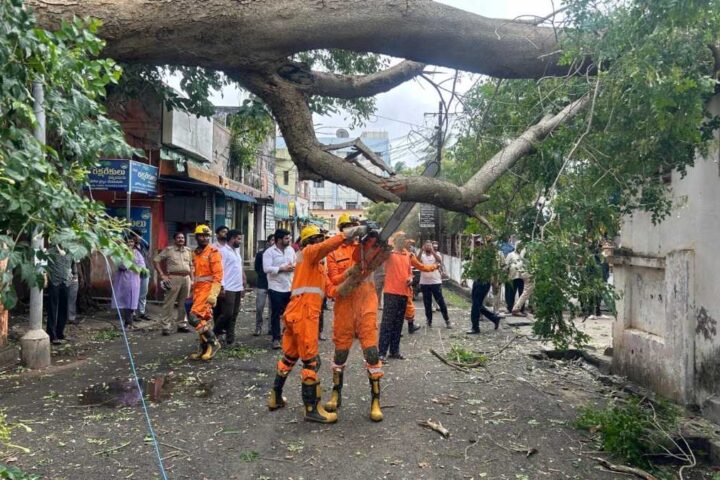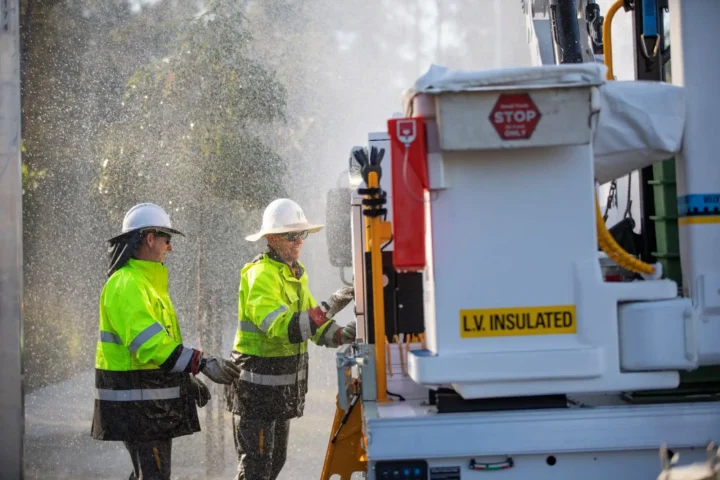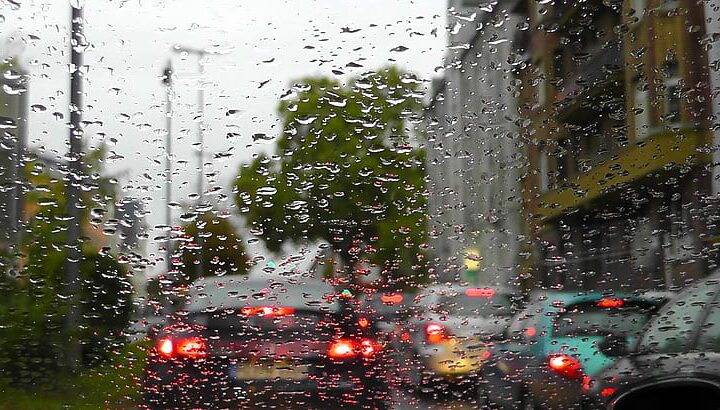More than 200 cooling centers in New York City are closed today, Wednesday, due to the Juneteenth holiday, amidst the first heatwave of the year in the tri-state area expected to last at least until Friday with daytime temperatures around 85°F (30°C). According to the city hall, 239 of the 555 public cooling centers across the city will be closed today, including 179 libraries. This equates to 43% of the total. To find the nearest one that will be open, access rules—some are only for older adults—and schedules, you can call 311 or visit this portal.
The Mayor of New York, Eric Adams, held a press conference to address the situation, revealing plans to open about 500 cooling centers from Wednesday, June 19, to Friday, June 20. These centers will be strategically located in libraries, public offices, and other community-accessible buildings. “The first heat wave of the season is here and New York City has a plan to beat the heat — but we want all New Yorkers to have a plan as well,” said New York City Mayor Eric Adams.
Governor Kathy Hochul also held a press conference focussing on the issue. “A heat wave can be more than just uncomfortable, it can be deadly and life threatening if you are not prepared. Residents can find the nearest center through the official website. “Heat waves can be dangerous — with one expected this week, I encourage New Yorkers to take precautions necessary to stay safe and avoid exhaustion,” Governor Kathy Hochul said. “Keep an eye on your local forecast, stay hydrated and postpone outdoor activity as much as possible.”
Zach Iscol, Emergency Management Commissioner, assured that there are still hundreds of centers available, in addition to other options to combat the heat, accessible at this link. New Yorkers should prepare for really hot weather this week, with heat indices possibly nearing 100 degrees,” explained NYC Emergency Management Commissioner Zach Iscol. “Encourage the people in your life to beat the heat by limiting strenuous outdoor activity, staying hydrated, wearing light clothing, turning on the air conditioning, heading to the pool or beach, or spending time at your local library, museum, or coffee shop. Learn the signs of heat stroke. Spread the word that that heat is not just a discomfort – it’s life-threatening,” he added.
The New York City Department of Health has shared a series of recommendations to protect from the adverse effects of extreme heat: Seek shelter in air-conditioned places, even if only for a few hours. Avoid direct sun exposure and abrupt temperature changes. Reduce strenuous physical activities, especially during peak sun hours (from 11:00 a.m. to 4:00 p.m.). Perform strenuous physical activities during the cooler hours of the day, preferably early in the morning (between 4:00 a.m. and 7:00 a.m.). Rest and seek shade if working outdoors or doing intense physical labor. Hydrate constantly with water every 15 minutes, even if not thirsty (avoid alcoholic or caffeinated beverages). Eat small and frequent meals. Wear light and light-colored clothing. Never leave children or pets inside a vehicle, not even for short periods.
Similar Post
In New York City, most heat-related deaths occur in homes or other spaces without air conditioning. But some people do not have a unit or do not turn it on due to the high cost of the electric bill or other reasons. When there is extreme heat, authorities ask New Yorkers not only to take care of themselves individually but also to be aware of their neighbors and relatives, especially babies, the elderly, and people with risk diseases.
Additionally, to avoid blackouts and fires, Con Ed recommends: Limit the use of large appliances, such as washers, dryers, dishwashers, and microwaves, between 2 and 10 p.m. Use only one large appliance at a time at home. Limit the use of air conditioning whenever possible. If you have multiple units, turn on only one. Use fans to help circulate the air. If you open windows or balconies, do not leave children unsupervised. Carefully check window guards periodically. Covers or screens are not safe substitutes. Turn off the air conditioning when you are not home and use a timer to start cooling half an hour before you arrive. Set the temperature to what is comfortable for you.“It is essential to stay cool during hot weather – use air conditioning or go to a cool place where you feel comfortable,” elaborated Health Commissioner Dr. Ashwin Vasan. “And remember to stay hydrated with water or electrolyte drinks — even when you don’t feel thirsty — and minimize caffeine and avoid alcohol. Also be a buddy. Take care of one another by checking in on family, friends and neighbors — especially older adults — to make sure they have a plan to keep cool and beat the heat,” he said.
